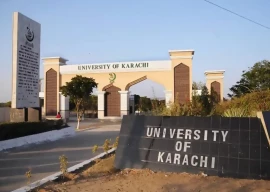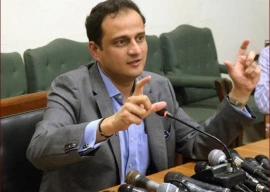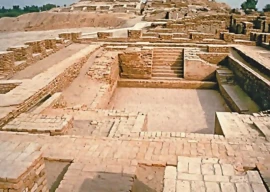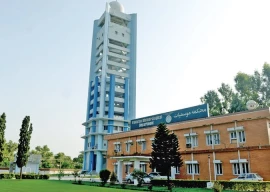
The first batch of any institution is usually the most loyal to its alma mater’s growth, as proved by the inaugural class of the Aga Khan University’s (AKU) Medical College which contributed US$500,000 for an endowment fund to support education programmes and research at the institute.
Dr Zubia Mumtaz of the Class of 1988 presented this gift to AKU president Firoz Rasul at the 25th anniversary reunion organised at the campus on Friday.
25-year journey
The year 1983 was a very different time in the arena of medical education. “One could only go to a public medical colleges or the Army Medical College,” recalled Dr Saad Shafqat, a neurologist and writer.
In the public sector, the situation was very bad because the country was struggling during the military rule of General Ziaul Haq. Public institutions were failing to finish classes on time, leading to extend a five-year medical degree to seven or even eight years.

In these circumstances, when an advertisement came out for a new medical college in the private sector, medical students and their parents were ecstatic. While around 4,000 students applied in 1983, only 50 were selected for the inaugural batch. “Since the campus would take another two years to be constructed, we had to take classes at the second floor of the College of Physicians and Surgeons Pakistan in Defence Housing Authority.”
Dr Shafqat also found his life partner at the university, Dr Anita Zaidi, who is a professor and chairperson at the AKU’s department of paediatrics and child health.
At the time of medical college’s inception, Dr Zaidi had already enrolled for about six months at the Dow Medical College, but like most of the other 49 students, she left her college for the fledgling institution.
Life after AKU
Dr Rubina Sial, a psychiatrist currently based in Georgia, took a five-year hiatus after graduating as she moved to the United States but recalled that AKU’s credentials spoke volumes of her ability even after the break. “Imagine doing nothing for five years but still being given the opportunity to work based on the name of your merely 10-year-old institution,” said Sial.
“We felt that this was a special group of people,” recalled Shams Kassim-Lakha, the founding president of the university while talking to The Express Tribune. “They were like the first child to us — you always give more attention to your first child. The faculty was very anxious to devise the best possible standards while engaging with them.”
The first batch graduated in 1988 and most of them went all across the world for postgraduate training programmes, followed by getting associated with medical practice.
In this way, after a span of 25 years, explained Dr Shafqat, the class had almost scattered and most of the graduates were not even in touch with each other. “Perhaps, it was this 25-year milestone which gave us this feeling that maybe we should now start doing something for the university which gave us so much,” he added.
Around a year back, efforts were put together to give a gift to the alma mater. Those who had lost touch were eventually tracked down and an e-mail group was set up.
The premier batch’s urge to give back eventually ballooned up to half-a-million dollars with contributions from more than 80 per cent of its members, earmarked for education and research initiatives. “The AKU’s medical students, residents, fellows and graduate students, who wish to conduct a research study or other academic symposiums, can apply to this fund,” explained Dr Shafqat, adding that the endowment will also provide an opportunity for the non-AKU physicians and other allied health professionals practising in Pakistan to attend the university-sponsored non-degree clinical education and training programmes.
Published in The Express Tribune, December 21st, 2013.
COMMENTS (6)
Comments are moderated and generally will be posted if they are on-topic and not abusive.
For more information, please see our Comments FAQ
1725278108-0/Untitled-design-(4)1725278108-0-405x300.webp)
1719560458-0/BeFunky-collage-(17)1719560458-0-165x106.webp)

1721390241-0/BeFunky-collage-(20)1721390241-0-165x106.webp)








1725083820-0/Untitled-design-(24)1725083820-0-270x192.webp)
1725096749-0/Untitled-design-(1)1725096749-0-270x192.webp)









And what percentage of graduates from Dow, Sindh, King Edward, and other medical colleges settle in the West?
Hey, Shah, that is such an ignorant assumption I don't even know where to begin. AKUH is the only institution in the crazy land of Pakistan that trains its students with international standard medicine training. What they do AFTER that training is up to those students. Limited benefit to Pakistan? You clearly have not researched AKDN enough. I suggest that you do so at your earliest. Ungrateful baboons.
Good stuff from Aku Alumni... I rem Dow class of 78 also donated a huge sum of money for OT complex in civil hospital for their 25th anniversary :)
A very appropriate gesture.
Vast majority of AKU medical college graduates go abroad. They are essentially training the medical staff of for the West and it has limited benefit to Pakistan. However since they are private medical college it can do so.